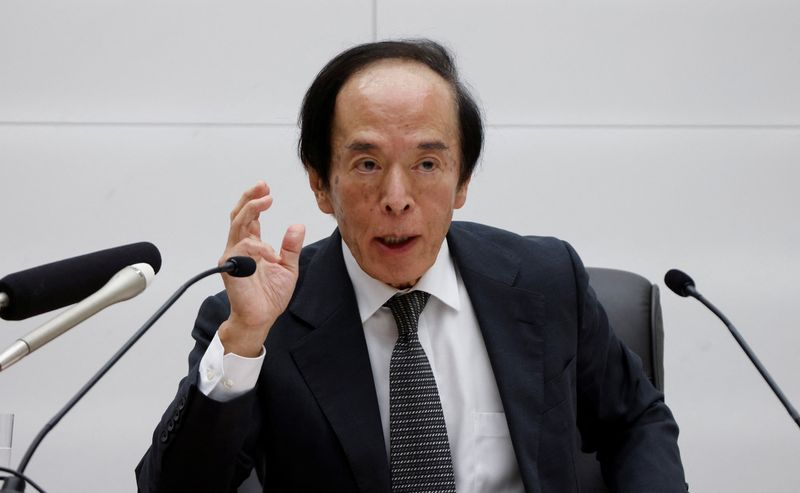By Leika Kihara
Osaka (Reuters) -Bank of the Japanese governor Kazuo Ueda said that inflation was on his way to hit the target of the bank, but warned of global uncertainties that companies can discourage wages, giving him a free hand to increase interest rates in October.
Ueda repeated the determination of the Central Bank to continue to increase silent interest rates if the economy and the prices are in accordance with its predictions.
But he said there were several uncertainties about the economic prospects of Japan, such as growing signs of weakness of the labor market in the United States and the expected impact of higher American rates on Japanese business gains.
“If uncertainty about foreign economies and trade policy remains high, companies can put a stronger emphasis on cost -saving and can reflect their efforts to reflect the price increases,” Ueda said in a speech for managers in the western city of Osaka on the western Japanese city of Osaka.
“The future course of the US economy and the behavior of monetary policy can significantly influence the Japanese economy and prices,” said Ueda. “We will therefore continue to follow the situation closely,” he added.
The Japanese yen weakened 0.2% to 147.60 per US dollar after the comments from Ueda, because some market players interpreted them as reducing the chance of an interest rise of October.
“There was no clear change in the communication of the Boj that would suggest that it was trying to lay the foundation for an increase in October,” says Shotaro Mori, senior economist at SBI Shinsei Bank.
“If the tariff effect were to be intensified from now on, it would be important to look at hard data on the economic growth of Japanese third quarter and business gains,” he said, predictively that an increase in December was now more likely than October.
The comments came after the closure of an American government that started on Wednesday, which could delay the release of a large part of the economic data and could make it more difficult for the BOJ’s rate decision.
Market players have closely monitored Ueda’s comments for all instructions on how quickly the BoJ will resume a speed cycle that has been paused because of uncertainty about the economic fall-out of American rates.
A Hawkish Board split during the September meeting of the BoJ and calls for an increase in speed in the short term due to a DOVISH policy maker, has led the markets to the price of more than 60% that the bank will increase rates to 0.75% of 0.5% during the next policy meeting on 29-30 October.
Ueda said that the Japanese economy has so far passed the hit of American rates, with many companies armed with buffers of high profit that have been collected in the past.
